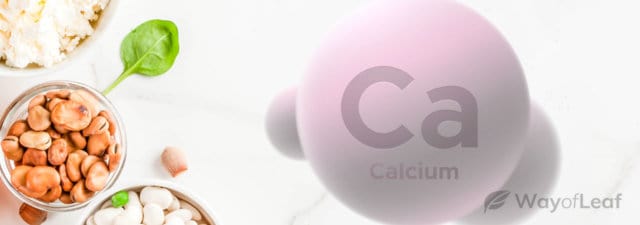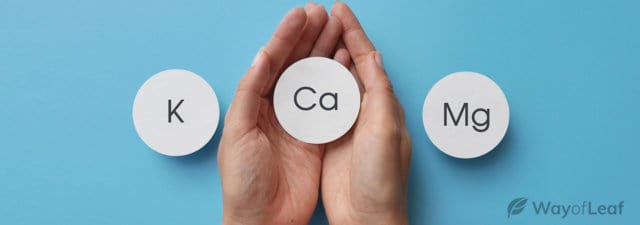A balanced, nutritious diet is the best way to ensure you’re getting the necessary vitamins and minerals during pregnancy. However, pregnancy supplements can also be beneficial since you may fall short on some essential nutrients.
During pregnancy, the body’s nutritional needs are different than at other times. Getting the proper nutrients is essential for nourishing yourself and for your baby’s healthy growth and development.
Two of the most important vitamins for pregnancy include folic acid and vitamin D. However, several other vitamins and minerals can also be incredibly beneficial for pregnant people. We will explore the best vitamins for pregnancy in more detail below.
What Are Pregnancy Supplements?
Whilst a healthy diet is important and should provide you with many nutrients you need during pregnancy, supplements can help cover any nutritional gaps.
Supplements for pregnant people do not replace a nutritious diet but instead support a healthy pregnancy. Whilst some individuals may meet their nutritional needs through a well-planned, nutrient-rich diet, it can be more challenging for others.

Generally, it’s recommended that you speak to a doctor or healthcare provider before adding any supplements to your diet. Doctors can uncover a deficiency in essential vitamins or minerals through blood tests.
Some may choose to take a pregnancy multivitamin, a combination of different vitamins and minerals. Certain multivitamins are designed especially for pregnant individuals, i.e., a prenatal multivitamin. You can find such supplements at pharmacies or supermarkets, or your GP may prescribe them to you.
Do not take vitamin A supplements or a multivitamin that contains vitamin A since too much could harm your baby.
What Are the Best Vitamins for Pregnancy?
When shopping for vitamin supplements, here are the most important nutrients needed for a healthy pregnancy.
Folic Acid
Folic acid can help minimize the risk of your baby being born with birth defects known as neural tube defects, like spina bifida. A synthetic form of folate, a B vitamin that plays a vital role in fetal growth and development, folic acid is considered one of the best vitamins for pregnancy.
Generally, it’s recommended to take 400 mcg of folic acid every day for 12 weeks before conception until the end of the first trimester. Foods rich in folic acid include green leafy vegetables, beans, and citrus fruits.
Vitamin D
Vitamin D helps the body absorb calcium and is integral for immune function, bone health, and cell division. Importantly, it helps your baby’s bones and teeth grow.
A deficiency in vitamin D during pregnancy has been linked to a heightened risk of preterm birth, preeclampsia, and gestational diabetes.
The recommended vitamin D intake during pregnancy is 15 mcg daily. Great sources of vitamin D include red meat, eggs, milk, and fatty fish like salmon.
Iron
The body uses iron to make hemoglobin, a protein responsible for carrying oxygen from your lungs to the rest of the body. Moreover, the body needs this iron to produce more red blood cells to deliver oxygen to the baby. Iron also helps prevent anemia.
Lean meat, poultry, beans, nuts, dried fruit, and leafy green vegetables are good iron sources.
The need for iron increases markedly during pregnancy. The recommended daily dose is 27 mg, which most prenatal supplements contain. However, you may require a higher dose if you have an iron deficiency or anemia.
Talk to your ob-gyn or doctor about checking your iron levels, and eat plenty of iron-rich foods. Lean meat, poultry, beans, nuts, dried fruit, and leafy green vegetables are good iron sources. Additionally, foods rich in vitamin C can help the body absorb iron. Therefore, it’s a good idea to eat things like kiwi fruit, oranges, grapefruit, and broccoli, all of which have a high vitamin C content.
Vitamin C
Aside from helping the body absorb iron, vitamin C has additional benefits during pregnancy. It protects cells and helps keep them healthy, protects tissues from damage, and builds a healthy immune system.
The recommended daily intake of vitamin C during pregnancy is about 85 mg. It’s found in many fruits and vegetables and is most abundant in oranges, red and green peppers, broccoli, Brussels sprouts, strawberries, and blackcurrants.
Calcium
During pregnancy, calcium is an important nutrient for your health and the wellbeing and development of your baby. It helps your baby’s teeth and bones form and plays a role in building the baby’s heart, muscles, and nerves.
If you don’t get enough calcium while pregnant, the body takes it from your bones to give to the baby. This could result in health conditions like osteoporosis later in life.
Dairy foods, including milk, cheese, yogurt, and tofu, are rich sources of calcium. You should try to obtain at least 1,000 mg of calcium daily while pregnant.
DHA
DHA (docosahexaenoic acid) is an omega-3 fatty acid that plays a vital role in fetal growth and development. More specifically, DHA during pregnancy helps support the brain development, eye development, and nervous system development of the baby.
The body cannot produce significant amounts of DHA; therefore, doctors often recommend a DHA supplement during pregnancy. DHA is especially vital during the third trimester since this is the baby’s brain development peak.
Some of the richest sources of DHA include salmon, trout, shrimp, anchovies, herring, orange juice, and milk.
Iodine
Iodine plays a crucial role in developing the baby’s nervous system, brain, and skeleton. Additionally, iodine helps regulate a pregnant individual’s thyroid gland during pregnancy. Getting enough of this key nutrient ensures that your baby develops a healthy and normal thyroid too.
Although rare, thyroid problems in pregnancy can have detrimental effects, such as low IQ, deafness, and developmental delays.
Additionally, an iodine deficiency could increase the risk of miscarriage, stillbirth, and preterm delivery. Professionals recommend taking 220 mcg of iodine a day while pregnant. Iodine is commonly found in eggs, dairy products, and seafood.
Choline
Getting enough choline during pregnancy is vital because it helps develop the baby’s brain and spinal cord. Rich sources of this nutrient include chicken, pork, beef, eggs, and fish. Many pregnant people don’t get enough choline from their diet, so supplements may be necessary. The recommended daily intake is 930mg a day.
Magnesium
During pregnancy, magnesium is integral to almost every system in your and your baby’s body. Specifically, it plays a crucial role in immune, muscle, and nerve function.
The best magnesium sources include pumpkin seeds, almonds, chia seeds, spinach, black beans, and bananas.
While pregnant, a magnesium deficiency may increase the risk of preterm labor and chronic hypertension. Generally, it’s pretty easy to obtain a sufficient amount of this mineral through a healthy, balanced diet. The best sources include pumpkin seeds, almonds, chia seeds, spinach, black beans, and bananas.
Important Vitamins for Pregnancy: What to Consider
Every pregnancy is unique, and each individual will have different nutritional needs. While there are recommended pregnancy vitamins and dosages, some pregnant individuals may have different requirements. For instance, vegetarians and vegans, heavy smokers, pregnant teens, and those with certain medical conditions. Also, if you’re pregnant with more than one baby, there is an increased risk of malnutrition.

It’s important to consult with your doctor or gynecologist to determine what vitamins you require and in what doses. Generally, when shopping for a prenatal multivitamin, you should check for folic acid, iron, calcium, and vitamin D.
Additionally, depending on circumstances, your healthcare provider may recommend higher doses of certain nutrients. For instance, if you’ve previously given birth to a baby with a neural tube defect, your doctor may recommend an additional supplement with a higher dose of folic acid for subsequent pregnancies.
Unless instructed by a healthcare professional, though, you should avoid taking more prenatal vitamins (higher doses) than recommended. High doses of some vitamins could be harmful to you and your developing baby.
When to Start Taking Prenatal Vitamins
Healthcare professionals generally recommend that pregnant individuals start taking prenatal vitamins before conceiving. The baby’s neural tube, which forms the brain and spinal cord, develops within the first 3 to 4 weeks of pregnancy – before many people even realize that they’re pregnant.
Therefore, it’s wise to start taking prenatal vitamins before you get pregnant to ensure your baby obtains key nutrients during the first few weeks of pregnancy. This is when fetal development is at its most active. If you aren’t already taking prenatal vitamins, you should start as soon as you find out you’re pregnant.
The reality is, pregnancy takes a significant toll on the body, often causing an expectant parent to experience morning sickness, mood swings, exhaustion, and body pains. Your baby obtains all the nutrients it needs from you, so it’s common to have vitamin and mineral deficiencies during pregnancy. Ensuring the body has what it needs to nourish both the pregnant individual and baby is a lot easier if you start before falling pregnant.
Folic acid is one of the most important vitamins for pregnant people and those trying to conceive since it can reduce the risk of birth defects.
Final Thoughts on Best Vitamins for Pregnancy, and Minerals and other Nutrients
Eating a healthy, balanced diet will help ensure that you’re getting many of the important vitamins for pregnancy. However, you might not be receiving sufficient amounts of certain nutrients, in which case you may require prenatal supplements.
Folic acid is widely regarded as the most crucial vitamin for pregnancy because it plays an important part in fetal growth and development. However, there are several other vitamins and minerals that pregnant individuals should also be consuming.
Always be sure to consult with a doctor to determine your personal needs regarding vitamins, doses, safety, and potential risks and benefits.








